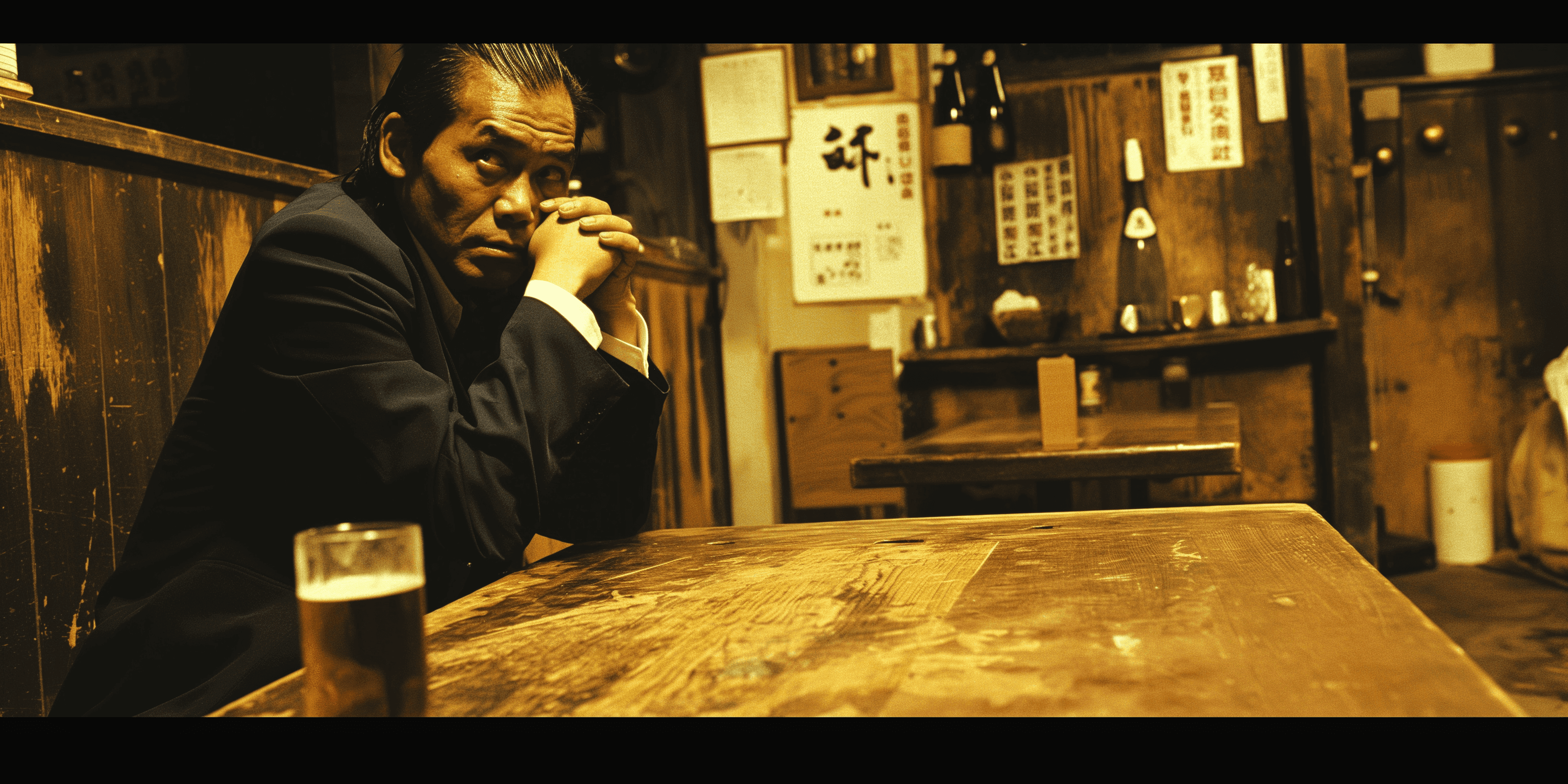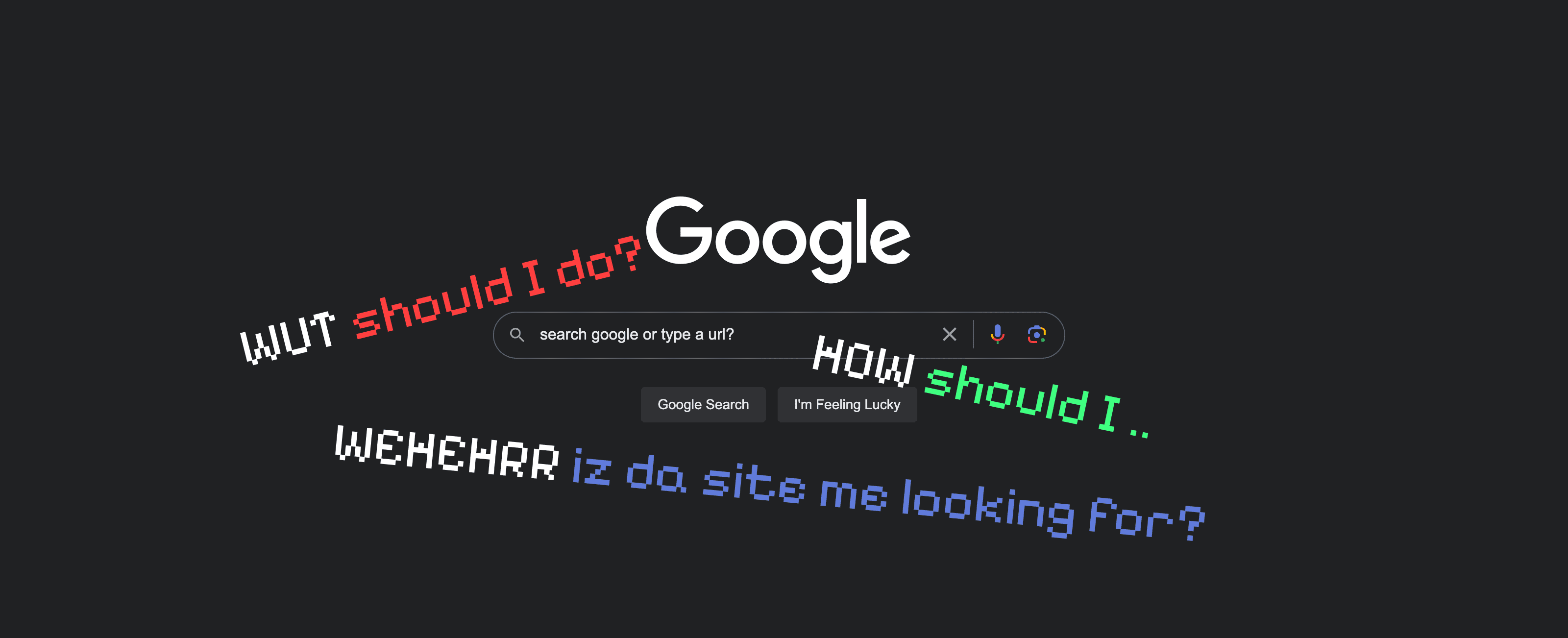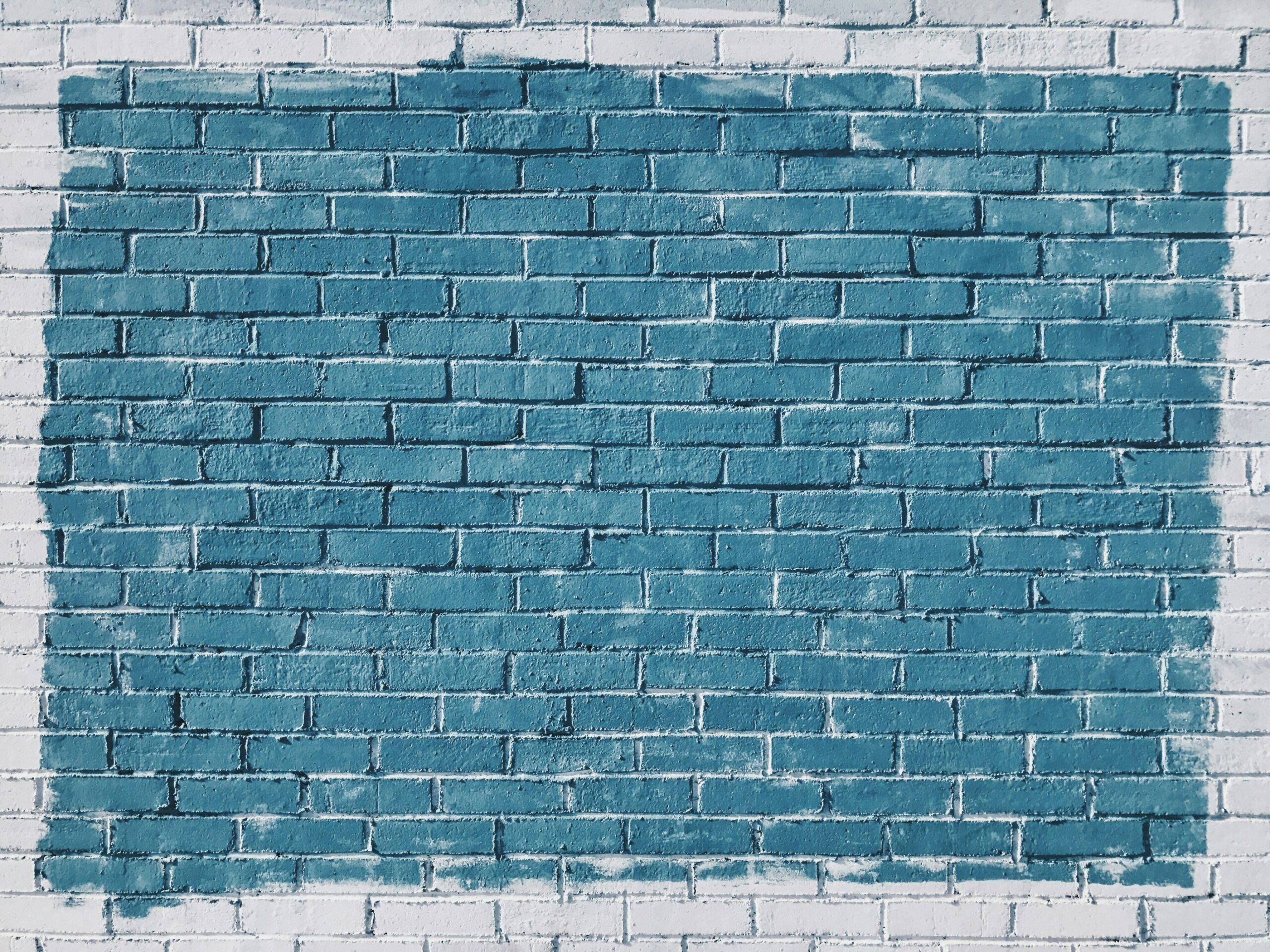Setting: A rundown izakaya in Harajuku, Tokyo, September 1992.
The Izakaya at the Edge of Reality
I never wanted to tell this story. For years, it’s been a shadow in my mind, a chapter of my life I’ve kept sealed away, convinced that some tales are better left untold. But stories, much like the spirits we try to drown in bottles of cheap whiskey, have a way of resurfacing when you least expect them to. So here I am, breaking the silence for the first time, about the night that twisted my perception of fear and fascination, in a rundown izakaya near Harajuku, Tokyo.
It was September 1992, a time in my life when the days blended into each other like smudges on a canvas, each as unremarkable as the last. Tokyo was my escape, a city where the lights were too bright and the nights too alive, promising the kind of anonymity only a foreign land could offer. That evening, I found myself wandering the streets of Harajuku, not in search of anything particular but rather, fleeing the suffocating grip of my mundane existence.
The izakaya was tucked away at the end of an alley, its sign barely visible, the paint peeling off like it was trying to shed its skin and forget its own identity. It was the kind of place you’d miss if you blinked, and perhaps I should have walked past it. But the allure of the unknown pulled me in, a silent siren call to a ship aimlessly adrift.
Stepping inside was like stepping into another realm, where the modern pulse of Tokyo gave way to a dimly lit relic of the past. The air was thick with the scent of aged sake and the remnants of countless cigarettes, each contributing to the izakaya’s lingering aroma of despair and defiance. A few locals glanced up, their eyes briefly meeting mine before returning to their drinks, uninterested in the stranger who had stumbled into their refuge.
I took a seat at the bar, the wood worn down by the years, each groove telling a story of its own. The bartender, a man whose age was as ambiguous as the izakaya’s history, nodded at me with a mixture of curiosity and indifference. I ordered a beer, my Japanese awkward but sufficient, and as I waited, I couldn’t shake the feeling that I was about to embark on a journey from which there was no return.
It was then that I noticed him, sitting a few stools away, a man who seemed as out of place as I felt. His presence was like a chill in the air, the kind that warns of an impending storm. He was dressed in a suit that spoke of power and danger, his hair slicked back, revealing eyes that had seen more than they should. There was an aura of menace about him, a silent declaration that he was not a man to be trifled with.
Against my better judgment, I found myself drawn to him, a moth to a flame that promised destruction. I signaled the bartender, ordering a beer for the man, an offering to a god of chaos I didn’t understand. As the bartender placed the drink before him and gestured in my direction, our eyes met, and in that gaze, I saw the depths of stories untold, of lives changed forever in the blink of an eye.
He nodded at me, a gesture of acknowledgment that sealed my fate, and with a voice that carried the weight of the underworld, he invited me to sit next to him. Little did I know, as I took my place by his side, that I was stepping into a story that would haunt me for the rest of my days, a tale of darkness, intrigue, and the eerie calm before the storm.
And so it began, my night sitting next to a scary Yakuza, in a story I never wanted to tell.
The Unlikely Companions
The first words he spoke were not what I expected. “You’re not from around here,” he stated, a fact rather than a question, his voice carrying a hint of amusement. It wasn’t the cold, threatening tone I had braced myself for; it was almost… inviting. I nodded, unsure of how much to reveal, my heart racing with a mix of fear and an inexplicable thrill.
“I’m just passing through,” I managed to say, my voice steadier than I felt. The man studied me for a moment, as if deciding whether I was worth his time, then turned his attention back to his drink. “Tokyo can be a lonely place for a stranger,” he remarked, his gaze fixed on the amber liquid in his glass.
The conversation started tentatively, small talk that danced around the edges of personal territory. He asked about my home, why I had come to Tokyo, questions that anyone might ask a foreigner. But there was an undercurrent to his curiosity, a probing, assessing quality that suggested he was searching for something beneath the surface of my answers.
As the night deepened, the izakaya began to empty, the buzz of conversation dwindling to a murmur. It was then that his friend arrived, a man whose demeanor was as sharp and dangerous as a honed blade. His entrance was silent, but the energy of the room shifted palpably, a testament to the respect—or fear—he commanded.
“This is Hiro,” the man beside me said, introducing his friend. Hiro’s nod was curt, his eyes scanning me with a discernible intensity before he took a seat. The air around us seemed to thicken, charged with an unspoken tension that made my skin prickle.
It was Hiro who first mentioned their affiliation with the Yakuza, the word dropping into the conversation like a stone into still water, sending ripples through my mind. My initial reaction was disbelief, a laugh caught in my throat, thinking it a dark joke. But the look in their eyes, the sudden seriousness that fell over them, told me this was no laughing matter.
The revelation changed everything. The mundane details of my life, the trivial concerns that had occupied my thoughts, faded into insignificance. I was sitting next to men who lived in the shadows, whose lives were woven with threads of danger and secrecy. And yet, there was a strange sense of honor about them, a code that governed their actions in ways I couldn’t fully understand.
As the night wore on, they shared stories, veiled in ambiguity but hinting at a world so different from my own. There were no explicit tales of violence or crime, just the occasional reference to “business” or “deals” that had to be handled. Each story was a puzzle piece, revealing a fraction of the life they led, a life where loyalty was paramount, and betrayal was met with swift, merciless justice.
The more they talked, the more I found myself drawn into their world, a part of me fascinated by the allure of the forbidden, the dangerous. It was a feeling I couldn’t shake, a seductive dance with the unknown that both thrilled and terrified me.
But it was the things left unsaid, the pauses between words, the glances exchanged, that filled me with an unnameable dread. My imagination filled in the blanks with scenarios far worse than any story they could tell, each possibility more horrifying than the last.
As the night reached its zenith, the conversation took a darker turn. Hiro mentioned a recent “situation” that had been “resolved,” his tone casual, as if discussing something as mundane as the weather. But the look in his eyes, the slight tension in his posture, spoke of something far more sinister.
It was then that I realized the gravity of my situation, the precarious edge upon which I balanced. I was an outsider, a stranger who had stumbled into their world, and there was no telling how this story would end.
The weight of my choices settled heavily on my shoulders, a mix of regret and fascination binding me to my seat. I was caught in the web of their world, a silent observer to a reality I had never wanted to know existed. And as the night drew to a close, with the izakaya fading into a hazy memory, I couldn’t shake the feeling that I had ventured too far into the darkness, a darkness that now clung to me, a shadow I could never fully escape.
The Veil Lifts
The moment that defined the rest of the evening came unexpectedly, a sudden shift in the atmosphere that felt like the world tilting on its axis. Hiro received a message on a device that seemed too modern for the dim, timeless space of the izakaya. His expression darkened, a storm brewing in his eyes as he read the words on the screen. The air around us grew heavy, charged with an unspoken urgency that made my heart race.
He showed the message to his companion, who had introduced himself earlier simply as Kazuo. A silent conversation passed between them, their eyes locking in a dialogue I couldn’t hope to understand. It was clear that whatever news Hiro had received, it was significant, a ripple in the calm before a tempest.
Kazuo turned to me, his expression inscrutable. “It seems the night has other plans for us,” he said, his voice a blend of regret and inevitability. The way he looked at me then, with a depth of seriousness I hadn’t seen before, made me realize the gravity of their world, a place where choices and consequences were matters of life and death.
They stood, preparing to leave, and it was as if the temperature in the room dropped several degrees. The sense of danger that had been an undercurrent throughout the evening now surged to the forefront, a palpable force that made my skin crawl. I knew I was witnessing the edge of something vast and dark, a world where the stakes were unimaginably high.
Kazuo placed a generous stack of bills on the bar, more than enough to cover our drinks and then some. “For your hospitality,” he said, nodding to me, but his gaze lingered, heavy with an unspoken warning. It was a farewell, but it felt more like a benediction, a blessing for the uninitiated.
As they left, the izakaya seemed to exhale, the tension in the air dissipating with their departure. I was left alone with my thoughts, the weight of the evening’s revelations pressing down on me. The thrill of the encounter had faded, replaced by a deep, unsettling realization of how close I had come to a world where the rules were written in shadows and blood.
The bartender, who had been a silent observer throughout the night, approached me, his expression unreadable. “You made some interesting friends tonight,” he remarked, his tone neutral but his eyes sharp. It wasn’t a question, but a statement, an acknowledgment of the line I had unwittingly crossed.
I couldn’t find the words to respond, my mind still reeling from the encounter. The bartender seemed to understand, offering a nod of solidarity before returning to his duties. I realized then that the izakaya was more than just a bar; it was a crossroads, a place where different worlds intersected, and tonight, I had stepped into the crosshairs.
As I made my way out into the night, the streets of Tokyo felt different, as if I was seeing them for the first time. The neon lights, the bustling crowds, the cacophony of the city—it all seemed to conceal a deeper, hidden layer, one that thrummed with the pulse of secrets and stories untold.
The encounter with Kazuo and Hiro had peeled back the veil, offering me a glimpse into the darkness that lay beneath the surface of the city’s vibrant facade. I walked with a new awareness, a sense of caution mixed with a profound curiosity about the unseen forces that shaped the world around me.
As I looked back at the izakaya, its sign flickering in the night, I realized that my life had been irrevocably changed. I had come seeking escape, a diversion from the monotony of my existence, but I had found so much more—a story that would haunt me, a reminder of the thin line between the ordinary and the extraordinary, the seen and the unseen.
And as I disappeared into the night, the echoes of the evening’s encounter lingered in my mind, a story about sitting next to a scary Yakuza, a tale I never wanted to tell but now found impossible to forget.
Reflections in the Shadows
The days that followed my encounter at the izakaya were filled with a restless energy, a sense of disquiet that I couldn’t shake. Tokyo, with its endless maze of streets and its cacophony of sights and sounds, seemed to whisper secrets to me, each corner a reminder of the night that had peeled back the veil on a world I had never known existed.
I found myself drawn to the darker, quieter parts of the city, the narrow alleys and hidden doorways that I had once passed without a second thought. There was a part of me, irrational though it might be, that hoped to catch a glimpse of Kazuo or Hiro again, to reassure myself that the encounter hadn’t been a figment of my imagination.
But as the days turned into weeks, the intensity of the experience began to fade, the sharp edges of memory softening into something more akin to a dream. The realness of it, the palpable sense of danger and intrigue, gave way to the mundane realities of daily life. Yet, the story remained, a shadow in the back of my mind, a tale I had yet to tell.
I realized that the encounter had changed me in subtle ways. I was more observant, more aware of the undercurrents that flowed beneath the surface of everyday interactions. I saw the city’s inhabitants with new eyes, each person a potential story, a life filled with its own secrets and mysteries.
The izakaya became a symbol of that change, a threshold I had crossed without fully understanding the consequences. I couldn’t bring myself to return, yet I couldn’t forget it either. It stood in my memory as a place of transformation, a point of no return on a journey I hadn’t known I was taking.
The realization that I had been touched by the world of the Yakuza, however tangentially, was both thrilling and terrifying. It was a connection to a reality that most people only ever encountered in stories or on the screen, a brush with the unknown that left an indelible mark on my psyche.
As the months passed, the need to share the story grew stronger, a pressure building within me. It was a tale that demanded to be told, not for the sake of fame or recognition, but as a testament to the complexity of human existence, to the myriad paths that intersect in the tapestry of life.
And so, I began to write, the words flowing from me with an urgency I hadn’t expected. The story took shape, a narrative woven from the threads of memory and imagination, a blend of reality and fiction that captured the essence of that night.
Writing it down, I realized that the story was not just about sitting next to a scary Yakuza; it was about the moments that define us, the encounters that push us beyond the boundaries of our understanding. It was about the fragility of the lines we draw between good and evil, right and wrong, and the realization that the world is far more complex than we can ever fully comprehend.
The act of writing became a form of reflection, a way to process the experience and its impact on my life. It was a journey back through the shadows, a search for meaning in the darkness. And as the final words were written, I understood that the story was not just mine to tell; it was a part of a larger narrative, a thread in the fabric of the human condition.
In the end, the story about sitting next to a scary Yakuza was a mirror, reflecting the depths of the human soul, the darkness and the light that reside within us all. It was a reminder that life is a collection of stories, and that sometimes, the most profound tales are the ones we never intended to tell.
As I closed the notebook, the story complete, I felt a sense of release, as if a weight had been lifted from my shoulders. The tale was out in the world now, a story shared, its power diffused in the telling. And with that act of sharing, I stepped out of the shadows and back into the light, forever changed, but ready to face whatever stories the future might hold.



